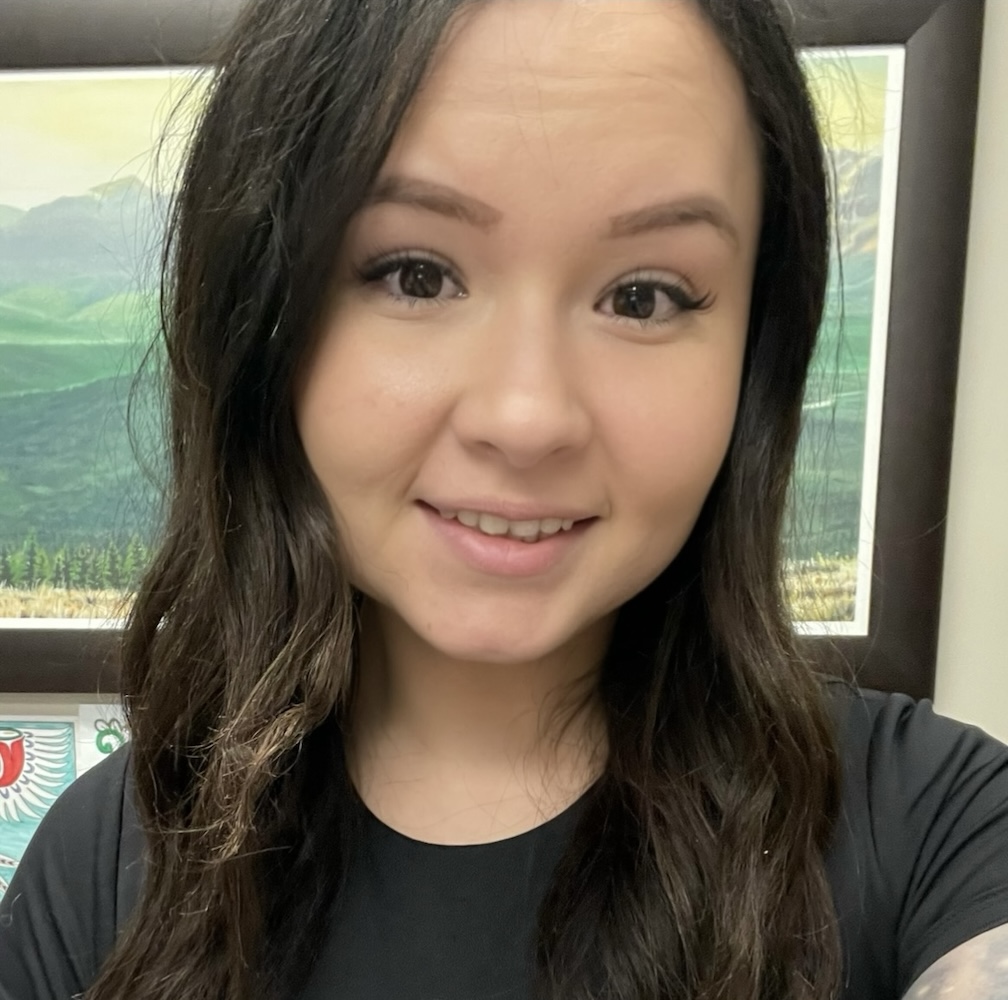Back to her future
Danica Erickson - 30 April 2024

Chelsey Jeffrey
As a child, Chelsey Jeffrey spent a lot of time with her family at the Stollery Children’s Hospital while her siblings were being treated for illness. She still remembers the kind and knowledgeable nurses, and thinking about being a nurse at the Stollery herself someday. Years later, the mother of two — who had not pursued her education after having her first child when she was 16 years old — found herself back at the Stollery. The circumstances were different this time, but the nurses still made a positive impression on her. “The youngest of my two children got quite sick after he was born and we stayed at the Stollery for about six weeks. During that time I was re-inspired by the nurses and I decided to return to school,” she explains.
Jeffrey graduated from the University of Alberta with a bachelor of science in nursing and, in 2023, she began working in the emergency department of the Stollery Children’s Hospital. In 2024, she became a case manager with the Awasisak Indigenous Health Program, the first pediatric Indigenous health program in Canada. In her new role, Jeffrey works with a team of nurses, social workers, cultural advisors and family engagement coordinators who connect with and support Indigenous families when their children are admitted to the Stollery. The team helps these families — many of whom are from remote northern communities — cope with the overwhelming experience of having a child in the hospital far from their community and support system. “A huge part of the program is just developing a sense of community for these families,” says Jeffrey. “If we’re in the office, they can stop by for tea and coffee. The nice thing about our team is it’s small and we're all Indigenous and have a shared understanding of how complex and scary the health-care system can be.”
When the families are ready to return home, the Awasisak team remains connected with them, contacting local health centres in patients’ home communities to arrange follow-up appointments and ensuring necessary prescriptions and medical supplies can be flown in or out and delivered to patients’ homes. “We follow them until they don't need us anymore. We're not a one-and-done support system.”
Advocating for families is an important part of Jeffrey’s work as well. She’s been in the same shoes as the families she supports and knows asking for support can be intimidating. Because of this, she encourages health-care professionals to remember these are life-altering experiences for the families involved. “There is often a reason the parents might appear difficult or disengaged. It might be fear, or having other things happening in their lives that the medical team might not have any idea about. It’s the nurse’s responsibility to build a therapeutic relationship. That child won’t be OK if the parents aren’t OK.”
Because of her experience with the health-care system as a child, a parent and now as a nursing professional, Jeffrey believes nurses can change lives. The connections they create can build trust, especially for patients from marginalized groups who don't always feel safe within the system. “The nurses who took the time to ask me how my day was or how I was doing, and built that therapeutic relationship with me, are the nurses who inspired me to go back and get my education. Connections change lives.”
Because of that belief, Jeffrey accepted an invitation from Susan Neufeld, her former nursing instructor, to deliver a territorial welcome to the U of A undergraduate nursing students on their first day of classes in the fall of 2023. She does so with the knowledge that she is welcoming a new generation of health professionals with an awareness of the complex history and trauma of Indigenous people. “It’s an opportunity to bring much-needed change to the system, and these students are the generation that will move forward with that understanding.”
It’s also important for her to welcome Indigenous students to the nursing program and encourage them to take the space they need and share their ideas and perspectives. She knows how much value they bring to the nursing profession. “We have a lot to offer in this new age of nursing and with changing world views and perspectives.”
“I’m so grateful for the nurses who allowed me to not only re-define my path in life, but want to start in this profession. It has changed my life and my family's life for the better.”